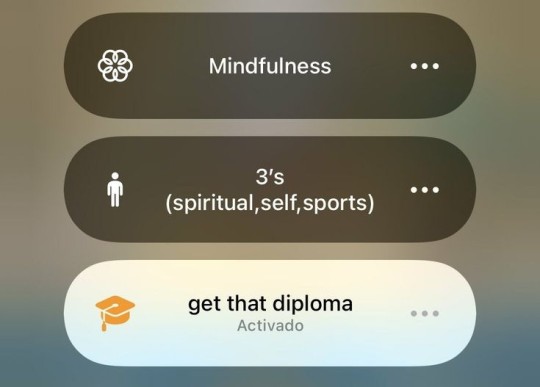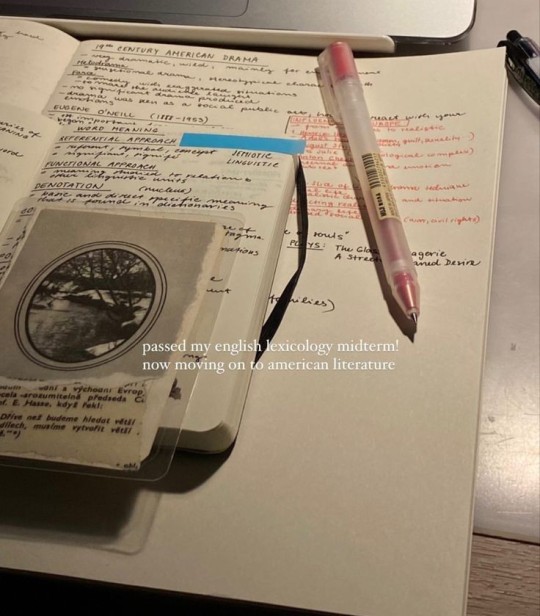#linkedin clone open source
Explore tagged Tumblr posts
Text



Resources and study tips to get you in cyber forensics
Master post • Part1 • part2
let's get you prepped to be a cyber sleuth without spending any cash. Here’s the ultimate tips and resources.
Ps: you can't become one while doing these pointers but you can experience the vibe so you can finally find your career interest


### 1. **Digital Scavenger Hunts**
- **CTF Challenges (Capture The Flag)**: Dive into platforms like [CTFtime](https://ctftime.org/) where you can participate in cyber security challenges. It's like playing *Among Us* but with hackers—find the imposter in the code!
- **Hunt A Killer (Digitally)**: Create your own digital crime scenes. Ask friends to send you files (like images, PDFs) with hidden clues. Your job? Find the Easter eggs and solve the case.
### 2. **YouTube University**
- **Cyber Sleuth Tutorials**: Channels like *HackerSploit* and *The Cyber Mentor* have playlists covering digital forensics, cybersecurity, and more. Binge-watch them like your fave Netflix series, but here you're learning skills to catch bad guys.
- **Live Streams & Q&A**: Jump into live streams on platforms like Twitch where cybersecurity experts solve cases in real-time. Ask questions, get answers, and interact with the pros.
### 3. **Public Libraries & eBook Treasure Hunts**
- **Library eBooks**: Most libraries have eBooks or online resources on digital forensics. Check out titles like *"Hacking Exposed"* or *"Digital Forensics for Dummies"*. You might have to dig through the catalog, but think of it as your first case.
- **LinkedIn Learning via Library**: Some libraries offer free access to LinkedIn Learning. If you can snag that, you've got a goldmine of courses on cybersecurity and forensics.
### 4. **Virtual Study Groups**
- **Discord Servers**: Join cybersecurity and hacking communities on Discord. They often have study groups, challenges, and mentors ready to help out. It's like joining a digital Hogwarts for hackers.
- **Reddit Threads**: Subreddits like r/cybersecurity and r/hacking are packed with resources, advice, and study buddies. Post your questions, and you’ll get a whole thread of answers.
### 5. **DIY Labs at Home**
- **Build Your Own Lab**: Got an old PC or laptop? Turn it into a practice lab. Install virtual machines (VMware, VirtualBox) and play around with different operating systems and security tools. It’s like Minecraft but for hacking.
- **Log Your Own Activity**: Turn on logging on your own devices and then try to trace your own steps later. You’re basically spying on yourself—no NSA required.
### 6. **Community College & University Open Courses**
- **Free Audit Courses**: Many universities offer free auditing of cybersecurity courses through platforms like Coursera, edX, and even YouTube. No grades, no stress, just pure learning.
- **MOOCs**: Massive Open Online Courses often have free tiers. Try courses like "Introduction to Cyber Security" on platforms like FutureLearn or edX.
### 7. **Scour GitHub**
- **Open-Source Tools**: GitHub is full of open-source forensic tools and scripts. Clone some repositories and start tinkering with them. You’re basically getting your hands on the tools real investigators use.
- **Follow the Code**: Find projects related to digital forensics, follow the code, and see how they work. Contribute if you can—bonus points for boosting your resume.
### 8. **Local Meetups & Online Conferences**
- **Free Virtual Conferences**: Many cybersecurity conferences are virtual and some offer free access. DEF CON has a lot of free content, and you can find tons of talks on YouTube.
- **Hackathons**: Look for free entry hackathons—often universities or tech companies sponsor them. Compete, learn, and maybe even win some gear.
### 9. **DIY Challenges**
- **Create Your Own Scenarios**: Get a friend to simulate a hack or data breach. You try to solve it using whatever tools and resources you have. It's like escape rooms, but digital.
- **Pen & Paper Simulation**: Before diving into digital, try solving forensic puzzles on paper. Map out scenarios and solutions to get your brain wired like a detective.
### 10. **Stay Updated**
- **Podcasts & Blogs**: Tune into cybersecurity podcasts like *Darknet Diaries* or follow blogs like *Krebs on Security*. It’s like getting the tea on what’s happening in the cyber world.
### 11. **Free Software & Tools**
- **Autopsy**: Free digital forensics software that helps you analyze hard drives and mobile devices. Think of it as your magnifying glass for digital clues.
- **Wireshark**: A free tool to see what's happening on your network. Catch all the data packets like you're a digital fisherman.
### 12. **Online Forensics Communities**
- **Free Webinars & Workshops**: Join communities like the *SANS Institute* for free webinars. It's like attending a masterclass but from the comfort of your gaming chair.
- **LinkedIn Groups**: Join groups like *Digital Forensics & Incident Response (DFIR)*. Network with pros, get job tips, and stay in the loop with the latest trends.
### 13. **Practice Cases & Mock Trials**
- **Set Up Mock Trials**: Role-play with friends where one is the hacker, another the victim, and you’re the investigator. Recreate cases from famous cybercrimes to see how you'd solve them.
- **Case Studies**: Research and recreate famous digital forensic cases. What steps did the investigators take? How would you handle it differently?


There you have it—your roadmap to becoming a cyber sleuth without dropping a dime. You don't have time find your interest after paying pennies to different ppl and colleges. You can explore multiple things from comfort of your home only if you want to.

#light academia#study blog#academic validation#academic weapon#student life#study motivation#study with me#study#studyblr#studyblr community#masterpostjam#codeblr
31 notes
·
View notes
Text
You hear about video game development?
Well. I wouldn't say I expected such a catastrophic implosion from Unity.
Now, I can't say that I didn't laugh at the situation. It's a hilariously terrible case of bad management coming up with bad ideas in desperation. But it's also a somewhat scary indication of the sorry state of the industry.
Unity controls about 40% of the engine marketshare (according to a linkedin post I found anyway). Unity dominates the engine scene by a large margin, followed by Unreal at around 30% and Cryengine by around 5%. Unity forms such a large part of the entire game development industry, that it's difficult to really even understand just how much they control the concept of games as a whole!
Most people are jumping to some paid alternatives, like the aforementioned Unreal and, to a lesser extent, Game Maker, but my suggestion is this: don't!
Within the last decade, all-encompassing closed super game engines have become less of a side venture and more of an expectation. Back in the 2000s, there were a few engines like this, mostly amateur ones. Game engines were less creation stations and more of a loose collection of middleware and tools. Purchasing the rights to the engine meant that you also got the responsibility of also tying the engine into something resembling a game yourself. I feel like this art has been lost.
Game engines nowadays are more of a purchase of a passing right to use and incredibly specific, closed set of tools. You don't get to define the tools, and you don't get to really own the tools. It's yet another example of the tradition of the games industry fucking over the customers, and the customers just going with it. Because of this, while Unreal got some free dunks on Twitter for this, I can assure you Epic is planning something equally terrible as Unity's PR faux pas, and it'll come into to play in about 3 years when everyone's just accepted that Unity sometimes financially screws you over.
But, game developers are indeed developers. They know software, and they can learn to make new software.
If you're a game dev and still reading this, I'd recommend taking a peek beyond the curtains of corporate cockfighting, into the realm of DIY game engines. It's a… somewhat janky world full of strange characters with unusual ideas on how much time it's acceptable to spend not working on a game, but it's also a place where you're not being sat on by fatcats.
Just as game engines have progressed in the past 20 years, so have libraries, middleware and resources for independents. Making your own engine isn't just picking up ANSI C and toiling for a year in software rendering hell. Open tools like Pygame, Monogame, LÖVE and Cocos2D (among many, many others) are far beyond just simple rendering libraries and border on being game engines sometimes. The difference is, these tools are open source, and they do not restrict you with what you can do with them.
There are several games you may have played made using these frameworks. Streets of Rage 4 (MonoGame), Celeste (MonoGame), Fez (XNA, aka. MonoGame), Miitomo (Cocos2D), Geometry Dash (Cocos2D)… I got tired of looking up more. There are a lot of games.
The future which I hope to see for game developers is one where you have a large assortment of simple tools you can pick. Level editors, asset converters, entity systems, all small chunks of a game engine you could drop into your own project to slowly build up your own collection of workflows to make games your own way, completely independent of any larger forces on the market.
The support for these frameworks is still somewhat barren compared to Unity, but I believe, that if more people jump to alternatives like this, more tools, tutorials and middleware built for them would start showing up. This is how Unity also got its start, about 15 years ago. You also really don't need all the power in the world to make your simple 2D Megaman clones. The fog created by the monolithic engines we have now have obscured just how simple the building blocks for your favourite games can really be.
It just takes some bravery and willingness to learn a new way to approach making games, but I think the outcome is worth it, even just for you.
21 notes
·
View notes
Text
The Rise of Arduino Compatible Boards - An Exploration of the Expanding Ecosystem
The Genesis of an Open Source Movement When Arduino was launched in 2005, it helped spawn the age of accessible, affordable microcontroller boards and platforms. By providing a common hardware and software standard that was simple to use but still powerful, Arduino opened the door for non-engineers and electronic hobbyists to easily create interactive projects and prototypes. This drastically lowered the barrier to entry for physical computing and embedded systems. Within a few years, the Arduino platform had grown into a thriving global community with developers of all skill levels sharing code, tutorials, and ideas. The Growing Demand Inspires New Options As Arduino gained popularity and demand increased, companies recognized an opportunity to expand the ecosystem. Rather than competing directly with Arduino, many started releasing boards that were compatible with the Arduino software and libraries. These clones and derivatives allowed users to benefit from Arduino's openness while also having alternative hardware options at lower price points or with additional features. Some boards were nearly identical clones while others incorporated unique enhancements. Regardless, their compatibility with the Arduino IDE gave users the flexibility to choose a board that best fit their specific needs and budgets. A Proliferation of Board Types and Form Factors Today, the variety of Arduino Compatible boards available is staggering. In addition to the classic Uno and Nano form factors, there are boards shaped as mini PCs, single-board computers, wearables, educational kits, drones, robots, and more. Each brings something new while still maintaining the foundational principles that make Arduino great. For example, some focus on size and portability while others emphasize power, connectivity, or cost. Educational boards make learning to code more interactive and hands-on. Industrial boards enable Arduino to be used in professional contexts that require certifications or rigorous testing. A World of Enhancements Beyond the Original Spec Many Arduino compatible boards one-up the original Arduino specs by including features like WiFi, Bluetooth, GPS, high-speed microprocessors, more memory and flash storage, additional input/output pins, and specialized sensors. Some push processing power to the level of Raspberry Pi while shrinking the board size. Others add compatibility for new languages beyond just C/C++. Interfaces like Ethernet, USB, and add-on shields expand what these boards can interface with. Many also supply dev kits with components, sensors, motors and displays to simplify prototyping of specific project types. Get more insights on Arduino Compatible
Unlock More Insights—Explore the Report in the Language You Prefer
French
German
Italian
Russian
Japanese
Chinese
Korean
Portuguese
Vaagisha brings over three years of expertise as a content editor in the market research domain. Originally a creative writer, she discovered her passion for editing, combining her flair for writing with a meticulous eye for detail. Her ability to craft and refine compelling content makes her an invaluable asset in delivering polished and engaging write-ups.
(LinkedIn: https://www.linkedin.com/in/vaagisha-singh-8080b91)

#Arduino Compatible#Microcontroller#Open-Source Hardware#Electronics#Prototyping#DIY#Hobbyist#Maker#Microcontroller Board#Arduino Uno
0 notes
Text
Ominos Solutions

TelegramCloneScript is a turnkey solution for launching your own secure messaging app. See how to easily build a Telegram clone with this powerful open source script. Read our guide on using TelegramCloneScript to quickly create a feature-rich messaging app. Learn how to customize and launch your own Telegram clone. Launch your own secure messaging app in days with TelegramCloneScript. This post covers everything you need to know to get started with this powerful Telegram clone solution. TelegramCloneScript allows anyone to build a messaging app identical to Telegram. Learn how to leverage this script to create a customized and secure Telegram clone app. Build a messaging app just like Telegram with TelegramCloneScript. This open source script makes it easy to launch a customized and secure Telegram clone quickly.
Follow Us on Facebook: - https://www.facebook.com/omninosTechnologies
Follow Us on Twitter: - https://twitter.com/omninoss
Follow Us on Instagram: - https://www.instagram.com/omninosinsta/
Follow Us on Linkedin: - https://www.linkedin.com/company/omninos-solutions/
Address: - SCO 454 to 460, Sector 117, TDI South X2,Backside Star Hospital
Call US: +91 9988880293
Email US: - [email protected]
1 note
·
View note
Link
linkedin clone open source linkedin clone php scriptlinkedin clone script

#linkedin script#linkedin clone#Linkedin Clone Open Source#linkedin clone php script#linkedin clone script
2 notes
·
View notes
Link

#linkedin script#linkedin clone script#linkedin clone php script#linkedin clone open source#linkedin clone
2 notes
·
View notes
Link

#linkedin script#linkedin clone script#linkedin clone php script#linkedin clone open source#linkedin clone
2 notes
·
View notes
Link

#linkedin script#linkedin clone script#linkedin clone php script#linkedin clone open source#linkedin clone
2 notes
·
View notes
Link
#linkedin clone#linkedin clone open source#linkedin clone php script#linkedin clone script#linkedin script
2 notes
·
View notes
Link
#linkedin clone#linkedin clone open source#linkedin clone php script#linkedin clone script#linkedin script
2 notes
·
View notes
Link
#linkedin clone#linkedin clone open source#linkedin clone php script#linkedin script#linkedin clone script
1 note
·
View note
Link
We are working on same direction to build your social media profiles.
#linkedin script#linkedin clone script#linkedin clone php script#linkedin clone open source#linkedin clone
1 note
·
View note
Link

#linkedin script#linkedin clone script#linkedin clone php script#linkedin clone open source#linkedin clone
0 notes

